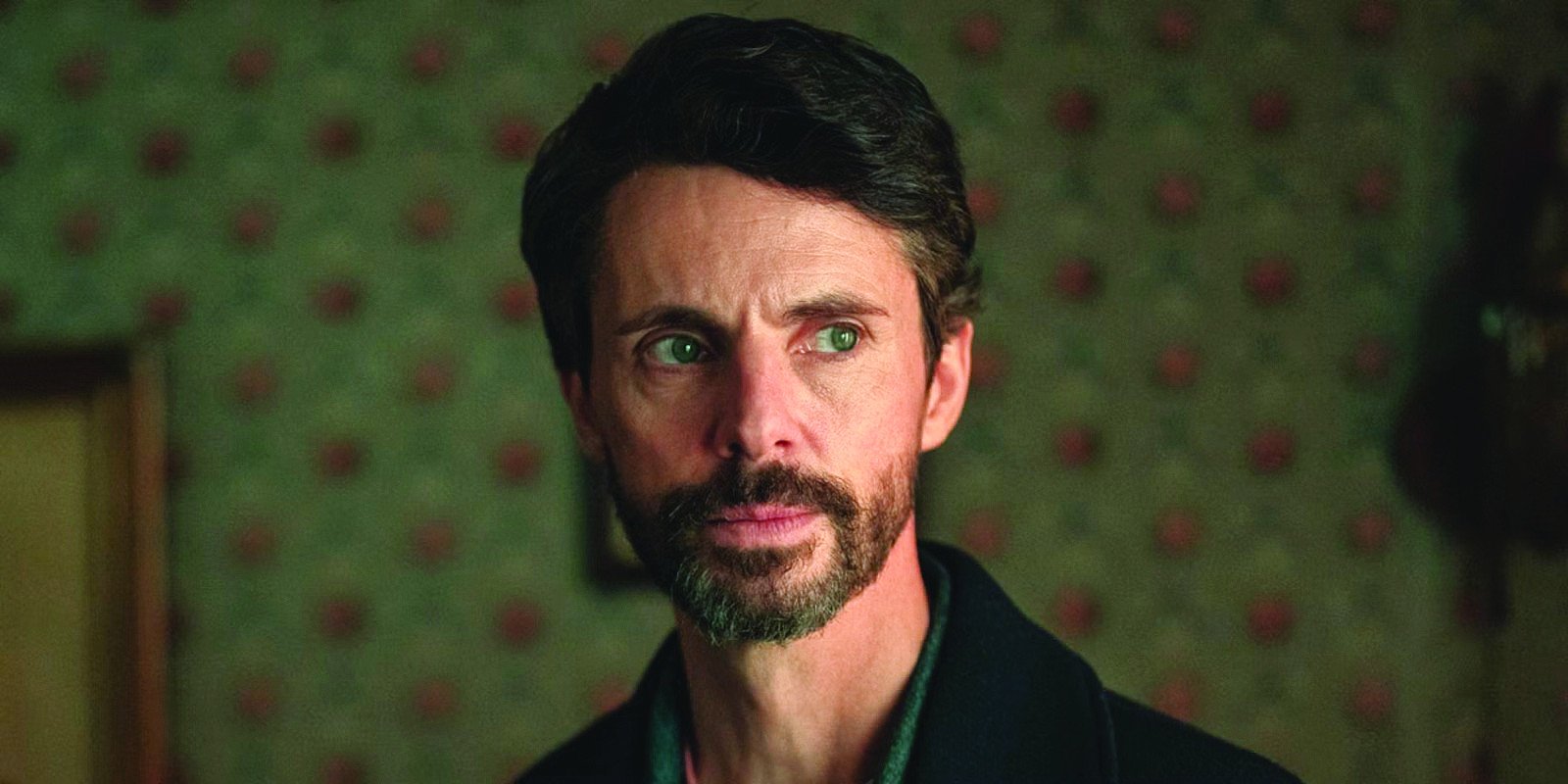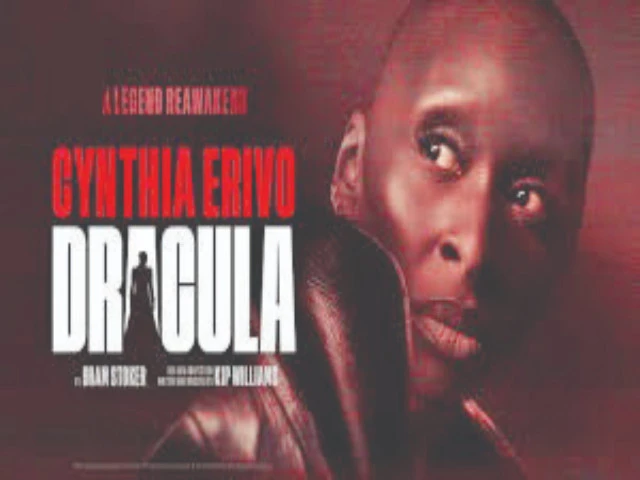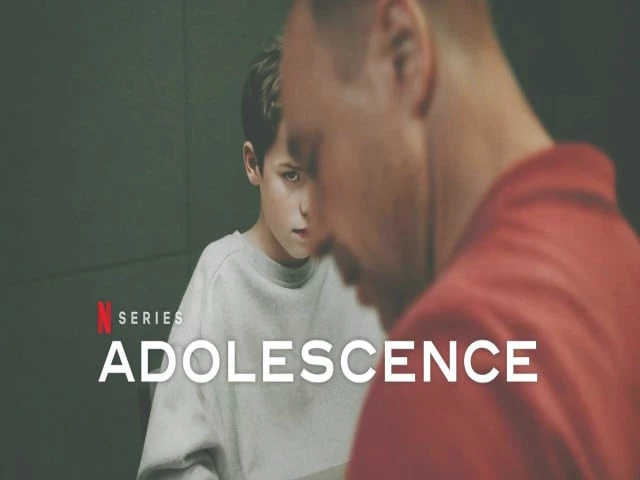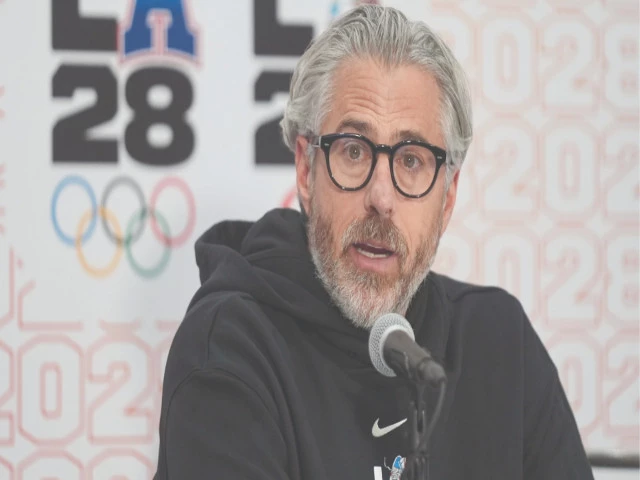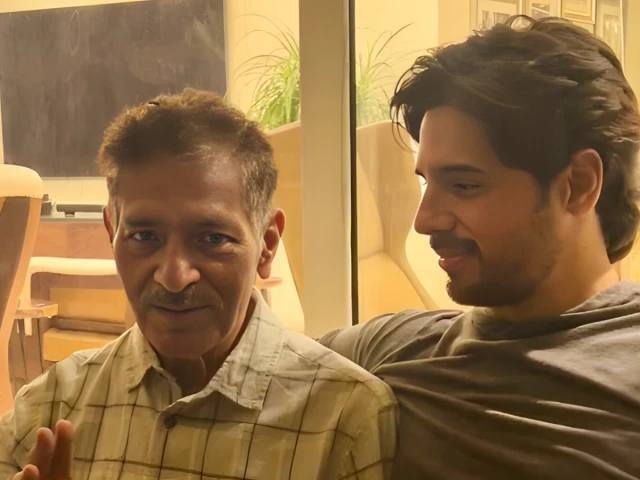SLOUGH, ENGLAND:
Amongst the rarest breed in television is the happy detective with a sunny disposition and good manners. Which is why those who prefer the much more commonplace rude, surly specimens (think Benedict Cumberbatch’s Sherlock or Idris Elba’s Luther) will be pleased to learn that Netflix’s Dept. Q. does not bother with rare detective breeds. Instead, it shoves before us some top tier scowling and filter-free bouts of rage in the form of lone wolf Carl Morck, exquisitely brought to life by Matthew Goode and his haunted, beautiful face.
A shooting gone awry, dodgy lawyers, PTSD, therapy sessions conducted with supreme reluctance, and a loose cannon policeman hurled in the midst of it all is, in a nutshell, what Dept. Q offers the thriller junkie – and in a world infested with mediocre thrillers populated by characters as interesting as pencil sharpenings, here is a show that delivers its promise.
Goode’s good looks will be familiar to romcom addicts from 20 years ago (Chasing Liberty) and anyone who adores a devious villain (The Crown, Ordeal By Innocence). In Dept. Q, however, Goode has to work to earn our sympathies as he treads the fine line between a brainy hero and a man who lets the razor-sharp barbs gush from his lips with the force of the Amazon river during the rainy season. You do not need to be a great detective or have an overactive imagination to work out whether or not he succeeds.
Pray, tell us more
Set in a perpetually overcast Edinburgh but based on Danish crime noir novel The Keeper of Lost Causes (the first book in a series of ten) by Jussi Adler-Olsen, Carl’s tale of woe does not so much swan dive into action as it does freefall before hitting the ground running. We are plunged into Carl’s bleak angst-ridden universe as he and his partner stroll into a crime scene, with some very unexpected results. Carl’s mental health spirals out of control, manifesting in a sullen demeanour and a penchant for shouting. Thisis bad news for anyone who has to engage with him in conversation, be it his unfortunate colleagues, his therapist, or his long-suffering boss, mainly because (like all TV detectives with a healthy ego) Carl is convinced that they are all far, far stupider than he is.
Tempted though she is, Carl’s boss, Moira (Kate Dickie), is unable to fire him. Therefore, adopting an unspoken ‘out of sight, out of mind’ philosophy, Moira does the next best thing: she banishes Carl to ‘Department Q’, the office’s urinal-filled basement, which appears to be illuminated (if that is not too strong a description) by a single 20-watt bulb from the 1980s. In these uninspiring new surroundings, Moira also dumps upon Carl an unwanted IT man called Akram (Alexej Manvelov).
At a later date, Moira is startled to learn that Akram spends very little time doing IT-related work as initially advertised and deals with uncooperative witnesses by throwing them down the stairs or bruising their windpipes, depending on what the occasion calls for. Akram’s other identifying mark is that he is a Muslim who has fled Syria. We are made acutely aware of his faith because he declines Morck’s offer of alcohol and prays in the office on a prayer mat, albeit not in a way any Muslim has ever prayed in their lives, presumably because the research department behind Dept. Q did not ask the right questions when fleshing out the script.
However, in the grander scheme of things, we must overlook these niggling details, as Akram’s piety is not the focal point of this story. To seal the trio, Carl also unwittingly inherits Rose, a fresh-faced rookie aching to do something more interesting than filing paperwork. Having thus sent away her Department Q team down to the basement, Moira bequeaths them all an alarmingly large pile of unsolved cold cases that had, up until now, been festering away in an office cabinet somewhere. It is, of course, one of these cases that Carl and co pick up to work through for the duration of the show’s nine episodes. Can Carl and his team overcome their fearless leader’s grumpiness and come together as a cohesive whole?
A second strand
Carl’s is not the only sordid tale we are introduced to. Minutes into Dept. Q’s opening, we encounter stern-faced prosecutor Merritt Lingard (Chloe Pirrie) who, sadly, is not having the greatest luck in court when we witness her in action. Merritt’s troubles are not limited to the courtroom; she also has someone sending her threatening voice messages and stalking her.
And because bad luck comes in threes, Meritt’s life is consumed by worrying about her beloved disabled brother. Mentally, she has no spoons left to spare, but because she sports a severe, unflattering haircut, we are far less disposed to be sympathetic to her plight than we are to the rude Carl’s gaunt handsome face. That, unfortunately, is how shallowness works. Goode’s bearded Carl gets a pass, and Pirrie’s monstrous fringe (although nowhere near as horrific as the one sported by Violett Beane’s Imogene Scott in Death and Other Details) pits us against her.
But not for long – a welcome relief for those viewers plunging into an awkward moment of self-reflection as they ponder over how they could possibly be shallow enough to be manipulated by a bad hair day. As with any thriller that follows the rules, Carl’s and Merrit’s stories become irrevocably intertwined in a roller coaster ride, culminating in a conclusion that brings a welcome release after escalating tension. If there are moments of mortifying cheesiness throwing a spanner in the works, the interspersed moments of raw horror chisel it all away. Bullets meet flesh, rocks go flying, faces get kicked. Carl’s sullen demeanour is definitely earned.
When gore meets good
Those moments of gore, however, are just that: moments. With an underlying thread of black humour stitching everything together, Dept. Q ensures that you will miss very little if you watch with your hands over your eyes during the more blood-heavy moments. The one redeeming factor of all this violence is that it is all accompanied by a llinguistically intoxicating lilting Scottish accent. (Conversely, if the more rural Scottishness sails over your head, be grateful that we live in the age of subtitles.)
Are there unanswered questions left hanging as the credits roll by on the final episode? Yes. Is Goode good looking enough that shallow viewers can forgive this travesty? Also yes. Because unanswered questions mean one thing: the possibility of season 2. Until then, we will have to dream up the answers ourselves, and perhaps write to the Dept. Q team with gentle suggestions about how Akram can improve his prayer technique moving forward.


